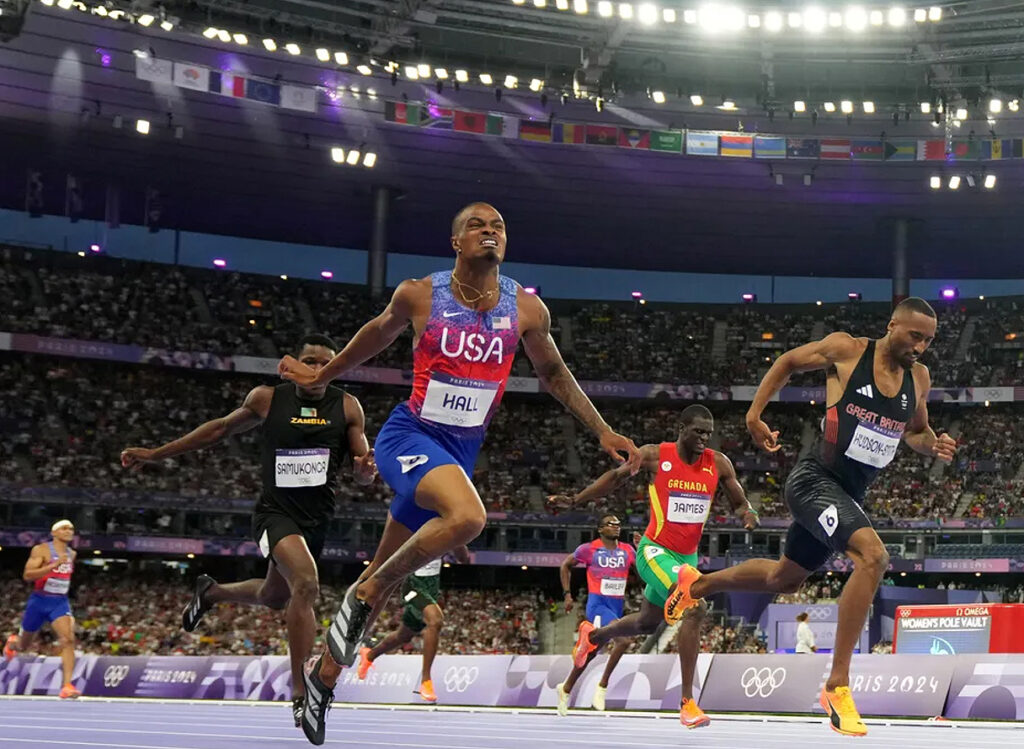
By Chuck Sanders
Surely the 2024 Paris Olympics will go down in history as one of the finest editions of the grand spectacle that is the Summer Games. Even though the television, the 2024 Olympics were awesome. Merci, Paris! This time around, my favorite Olympic event turned out to be the men’s 400-meter dash, won by American Quincy Hall.
If you have ever undertaken a 400-meter run—one full lap around the track—you know it is a surprisingly long way. Indeed, prior to the 1924 Olympics, also in Paris, the 400 was run as a middle distance race, where runners ran the first part of the race at a moderate pace and then sprinted near the end. This changed at the 1924 Games when Scottish sprinter Eric Liddell switched at the last minute from his usual event—the 100-meter dash—to running the 400. Not well experienced with the 400, Liddell ran it as a sprint, winning gold and setting a world record that held for 12 years, forever changing how the 400 is run. This story is beautifully recounted in the 1981 Academy Awards Best Picture awardee Chariots of Fire.
Quincy Hall was not favored to win the 2024 Olympics edition of the 400. Indeed, he wasn’t even considered the top American running. When he lined up for the start of the race, he wore a golden grill (a ceremonial mouthpiece), which gave him a decidedly grim visage throughout his run. At 300 meters, Quincy was in fourth place and looked terrible. The NBS announcer even remarked “he’s fading badly.” But then he dug down and kicked into overdrive. With a lumbering gait he scorched the final 100 meters, passing the leaders just before the finish line.
Hall did not have a lot to say in his interview immediately after the race; I think the grill made it hard to talk. So, I did a little bit of research on him. Hall did not come from athletics royalty. After growing up in Kansas City, where he was a high school track star, he attended junior college on the West Coast. In an article by Marcus Thompson in The Athletic, Hall describes the experience of arriving on the West Coast as an out-of-state junior college student: “…that’s where the grit comes from. When you have no food. You’ve got to get your own food. No cafeteria. No study hall. None of that. You find out how to be a dog by yourself.”
I’ve done a lot of reflecting on Hall’s description of those hard days when he was struggling to navigate life as a very young man. It is so admirable that he not only survived his experience, but advanced to glory! However, how many others, when faced with similar challenges, have not been able to punch through? I also have contemplated who I may have known or who I may know right now who having a hard time just getting through life. Maybe foreign grad students and postdocs sometimes feel this way when they show up in a far country, particularly when there is not already a well-established local community of expats from their home country that they can plug into? Think how hard it must be to figure out where to stay when they first arrive, how hard it is to get around in cities that often have no decent public transportation, how hard it is to find an apartment, and so forth. No one should have to learn how “be a dog” on their own.
I sign off on that thought, but add that I also learned that Mr. Hall raises pit bull terriers.
Acknowledgements
A similar version of this article is being published in the Protein Society Newsletter.